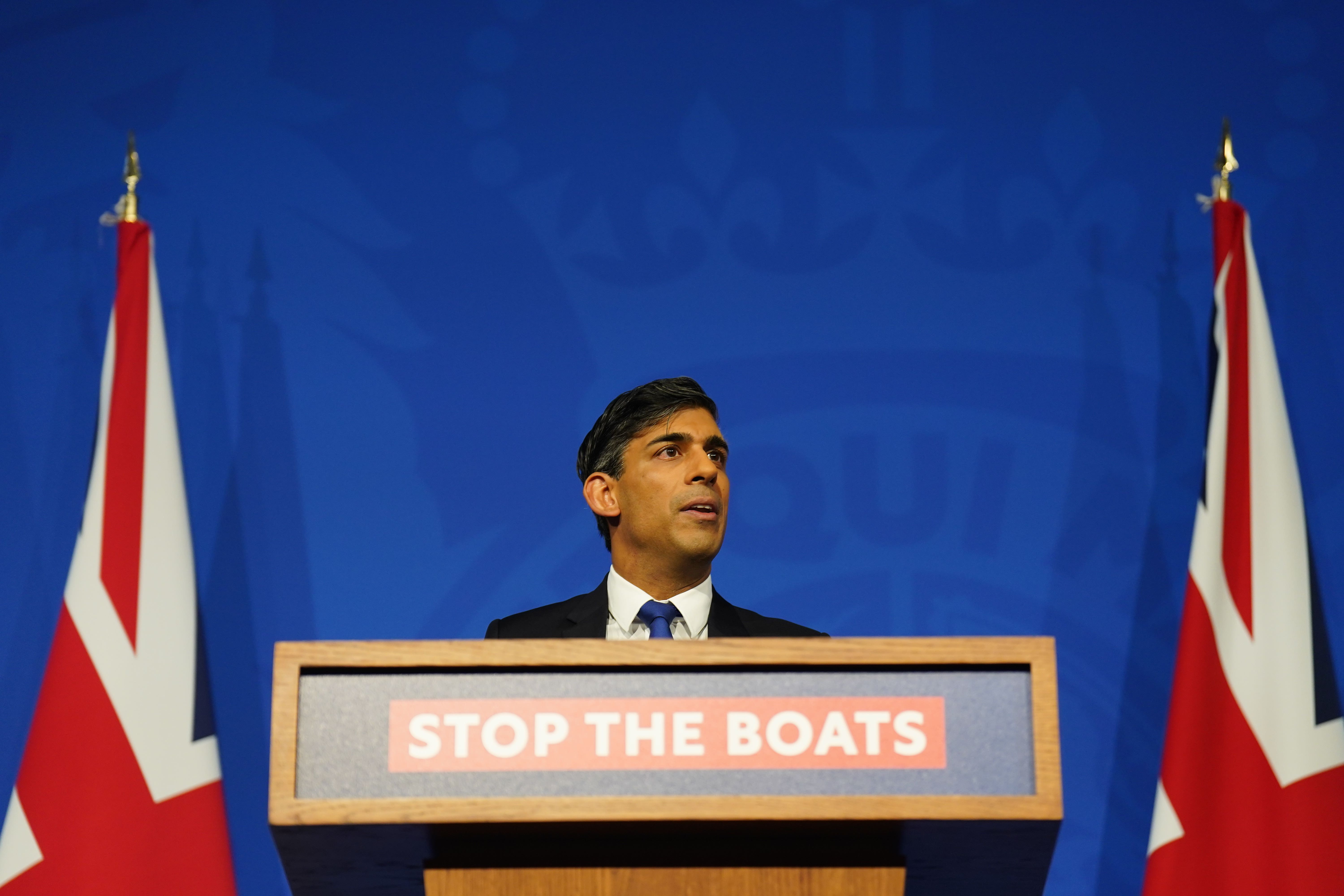Fifty migrants detained for Rwanda deportation flights freed on bail – lawyers
Duncan Lewis Solicitors said the detainees had been granted immigration bail in the wake of court hearings.

Your support helps us to tell the story
From reproductive rights to climate change to Big Tech, The Independent is on the ground when the story is developing. Whether it's investigating the financials of Elon Musk's pro-Trump PAC or producing our latest documentary, 'The A Word', which shines a light on the American women fighting for reproductive rights, we know how important it is to parse out the facts from the messaging.
At such a critical moment in US history, we need reporters on the ground. Your donation allows us to keep sending journalists to speak to both sides of the story.
The Independent is trusted by Americans across the entire political spectrum. And unlike many other quality news outlets, we choose not to lock Americans out of our reporting and analysis with paywalls. We believe quality journalism should be available to everyone, paid for by those who can afford it.
Your support makes all the difference.Dozens of migrants who were detained to be sent to Rwanda have been freed on bail, according to lawyers.
Duncan Lewis Solicitors said it represents 50 people being held ahead of deportation flights the Government wants to see take off in July and that they had all been granted immigration bail in the wake of court hearings.
It comes after campaigners last month called for asylum seekers due to be sent to the east African country to be freed immediately from detention after the Prime Minister said flights would not take off before the General Election.
Removal was not imminent at the time of detention and certainly not imminent after the Prime Minister’s announcement, calling for a General Election
In a post on X, formerly Twitter, the firm said on Wednesday: “We represent 50 of those detainees and can confirm that they all now have bail. Many clients are survivors of torture and trafficking. The tribunal, in granting bail, rightly assessed them to not carry a risk of absconding, reaching the rational view that removal was not imminent.
“Removal was not imminent at the time of detention and certainly not imminent after the Prime Minister’s announcement, calling for a General Election. The detrimental impact that unnecessary and prolonged detention has had on our vulnerable clients is yet to be fully assessed.”
Rishi Sunak said the “preparation work” was already in motion and that the plan would deter Channel crossings once in action but conceded that deportations would only take place “after the election”, adding: “If I’m elected, we will get the flights off.”
The comments prompted Labour leader Sir Keir Starmer to claim Mr Sunak never believed in the plan and had called an early election to avoid testing the policy.
Both Labour and the Liberal Democrats have vowed to scrap the Rwanda plan if elected, while the Conservatives have doubled down on the multi-million pound deal which has been beset with delays and has stalled for more than two years so far amid legal challenges.
The Conservative manifesto promised a “relentless, continual process of permanently removing illegal migrants to Rwanda with a regular rhythm of flights every month starting this July, until the boats are stopped”.
But Mr Sunak would not say how many people could be removed from the UK under the scheme or how many flights would take place.
Meanwhile, fresh High Court legal challenges against elements of the policy are under way, with Government lawyers telling a judge the first flight was now planned for July 24.
During the election campaign, it has emerged the Home Office had already released some migrants on bail after they had been detained for Rwanda flights but the department has refused to say how many were being held, how many had already been freed and how many more were due to be released.
The further delay in removals has raised the possibility that courts could look more favourably on immigration bail applications, in light of rules which state migrants can only be detained if there is a realistic prospect of their removal from the UK within a reasonable time scale.
When the first wave of detentions took place in April, government officials accepted some of the migrants being held could end up being released on bail as they braced for more legal battles over the plan.
The Home Office has been contacted for comment.